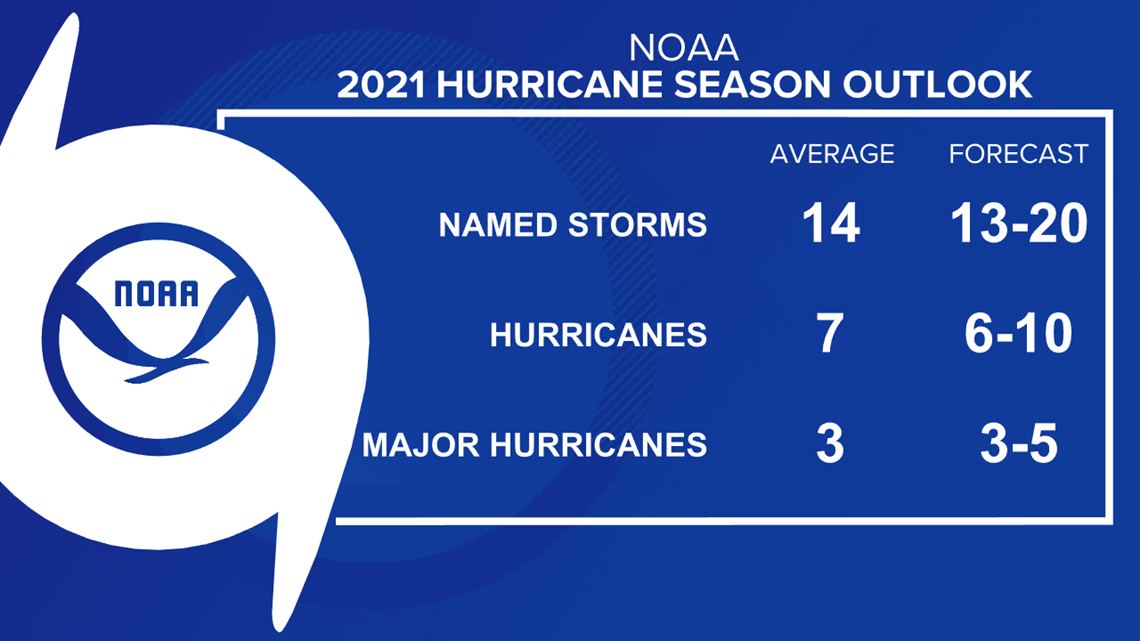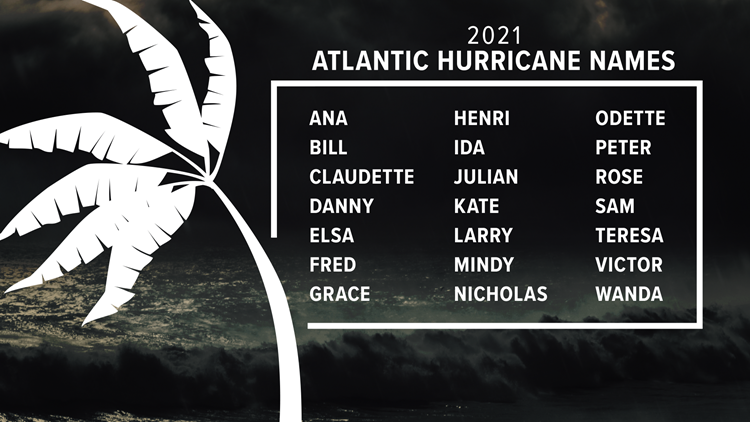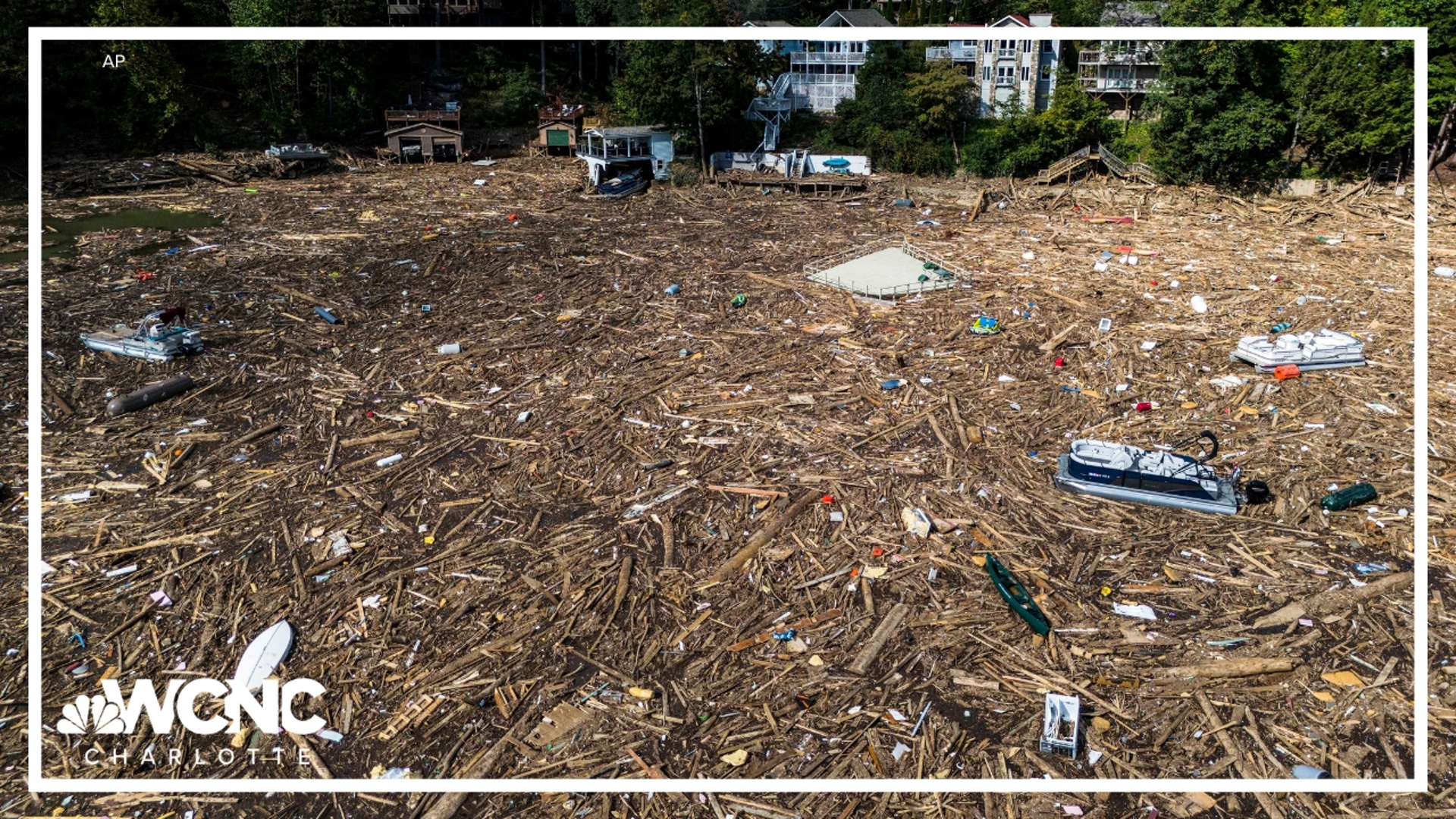MEMPHIS, Tenn. — Hurricane season in the Atlantic Ocean officially begins on Tuesday, and forecasters are expecting yet another active year.
2020 was a record-breaking year for tropical development. In fact, 30 storms were strong enough to be named, 12 of which made landfall in the United States. In total, these systems caused over $40 billion in damage.
So, how will 2021 compare?
National Oceanic and Atmospheric Administration (NOAA) forecasters expect anywhere from 13 to 20 named storms. 6 to 10 of these could end up becoming hurricanes, and 3 to 5 of those could become major hurricanes that reach Category 3 intensity.
A normal hurricane season would produce 14 named storms, 7 hurricanes, and 3 major hurricanes.
Experts say ocean temperatures that are warmer than normal will play a big factor this season, as storms need to be over warm water to strengthen. An active westerly flow of moisture off the coast of Africa also played a part in the above-average forecast.
What happens if we run out of names?
One notable change for this year's hurricane season is a new protocol for if we run out of names again.
That's happened twice before - in 2005 and 2020 - and the Greek alphabet was used as a backup in both cases.
Starting this year, there will also be a full secondary list of names that will be used if we run out. The Greek alphabet will no longer be used.


Memphis is usually safe but make a plan with your coastal relatives
Of course, there's no way to tell exactly when or where a storm will develop, but officials say those who live along the coast should have a plan and know what to do if a storm is headed their way.
While Memphis isn't directly impacted by landfalling hurricanes, we can still feel some effects. Remnants of tropical storms and hurricanes can bring flooding rain, gusty winds, and even tornadoes to the Mid-South.



